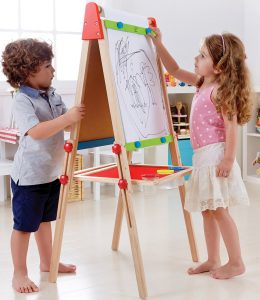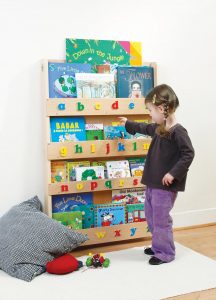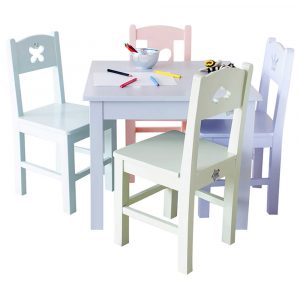The era of covid-19 has brought an era of social distancing, lockdown and unprecedented times. All of which are unprecedented and can be hard for kids to understand, let a lone cope with. The school year is officially starting, but your child may not be going back just yet. It could be your individual family’s decision, or perhaps the school itself has decided to implement e-learning. Either way, it’s challenging for your child to adapt. We’ve put together a guideline to support your child academically and emotionally during distance learning to make things as easy as possible for you and your family.
1| Communicate
Talk to your child about what the school year will look like. Answer any questions or concerns they have. Manage their expectations and find out how you can make distance learning go smoothly.
2| Let them choose their environment
It’s going to take some time for your child to wrap their head around their new homeroom (pun intended). To ease the transition, have your child choose the part of the house they would like their e-learning to take place. This will empower them and make them feel like they have a choice. It will also make them feel more comfortable. Make sure the environment conveys one of learning! Without our wide range of study rooms and desks this can be quite easy to establish.
3| Incorporate their favorite activities
Is your child an art lover? Heavy up on arts and crafts! We have a variety of homeschooling gadgets, toys and educational tools that they will enjoy!
4| Establish a routine
School is all about schedule, structure and routine. It’s what you child is used to so it’s important to maintain some of that especially during homeschool. Your child has to feel that some things are the same. Perhaps your can plan the day together and post the schedule somewhere it’s easy for them to access and refer to. Also, include breaks!
5| Set up a reward system
This is an exciting and fun way to give your child incentive and motivation. They’ll feel good about themselves for completing a task and earning a reward!
It’s important to make sure you’re participating as well. Children are used to working with their peers in school so it’s important not to make them feel like they’re a lone. So join them in the work they’re doing, whether it’s drawing, writing or reading. You have to remember that you’re both the teacher and the classmate! You’re also the parent, so avoid getting into a power struggle with them over their schoolwork. Instead give them a break and try again.














This is very nice and helpful blog post. Thanks and keep sharing!
You nailed it. Tune into newsmax tv — US and global politics. watch anywhere, anytime. breaking alerts, special segments. clean, distraction‑free player.